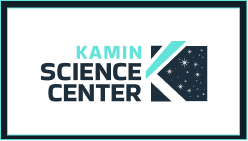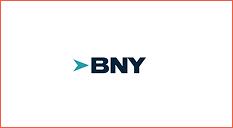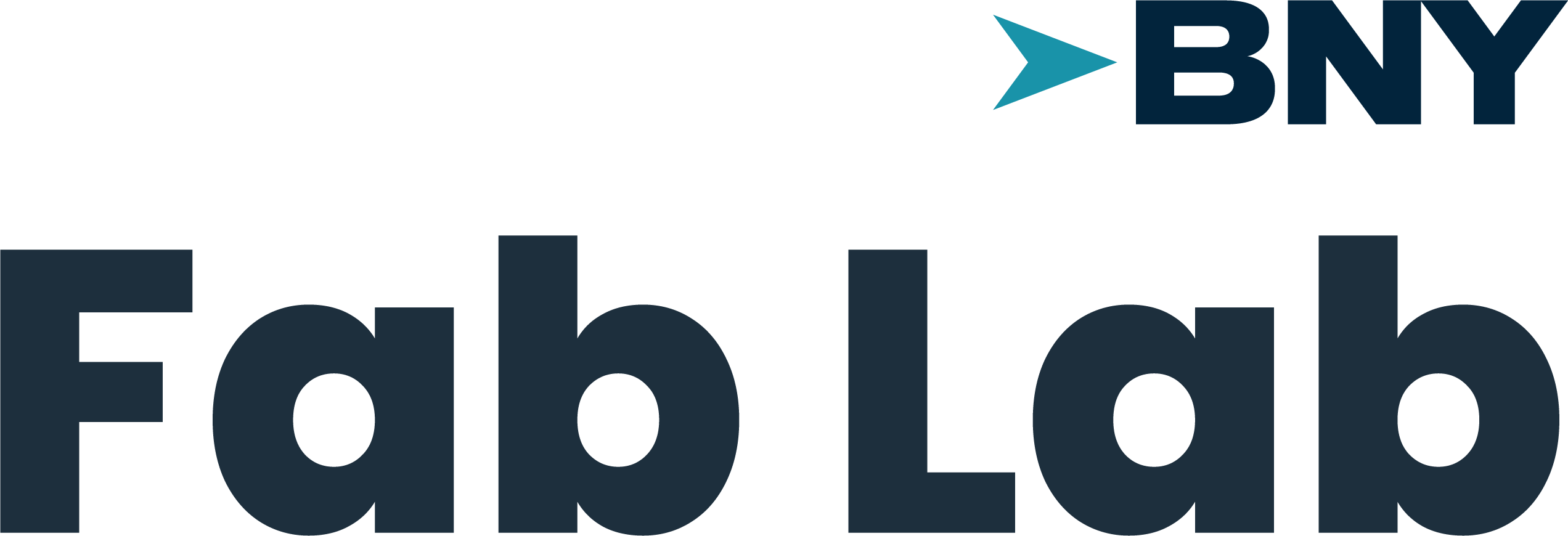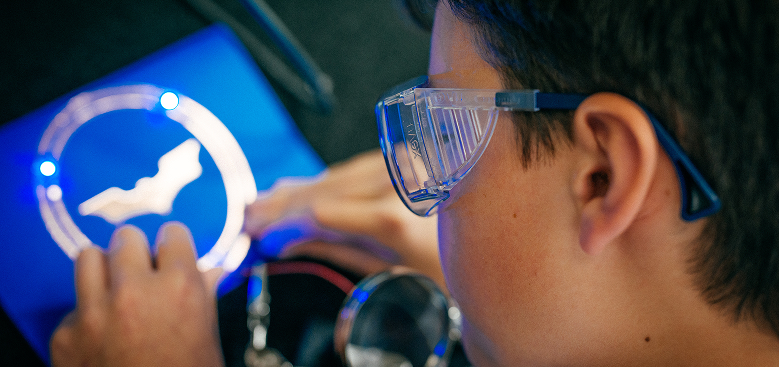menu
close
close
Explore our programs.
Looking to spark excitement at your school? Kamin Science Center’s Assembly Programs transform classrooms into launchpads for discovery. These high-energy, curriculum-connected experiences bring science to life in a way that sticks – combining dazzling demonstrations, real-world connections, and interactive fun your learners won’t forget.
Grades K–5 Assemblies
Grades 3–9 Assemblies
Build It to Blastoff (Grades K–5)
Future explorers, it’s time to launch! From rockets to robots, students will discover how teamwork, technology, and imagination fuel space exploration. Along the way, they’ll see how space science leads to innovations here on Earth – and how their big dreams can take us to Mars and beyond.
Curriculum Connections: Matter & Interactions • Energy • Forces & Stability • Earth & Human Activity • Ecosystems • Science & Engineering Practices
Subjects: Biology • Chemistry • Engineering • Environmental Science • Outer Space • Problem Solving
Cold Case – A Chem Mystery File (Grades K–5)
Put on your detective hats – Sam Silica needs backup! Students become crime-solvers as they test evidence, identify mysterious substances, and uncover the secrets of chemistry. With every clue, science reveals the truth in this thrilling mystery adventure.
Curriculum Connections: Matter & Interactions • Energy • Cause & Effect • Science & Engineering Practices
Subjects: Biology • Chemistry • Engineering • Environmental Science • Problem Solving
Turn Down the Watt (Grades 3–9 | Within 50 Miles of Etna)
Ever wonder how electricity gets from the power plant to your phone? Students will explore how communities and power companies keep energy flowing – and how they can help shape a smarter, greener future. Hands-on activities empower learners to take charge of their energy world!
Curriculum Connections: Matter & Interactions • Energy • Forces & Stability • Earth & Human Activity • Science & Engineering Practices
Subjects: Chemistry • Engineering • Environmental Science • Problem Solving
Looking to extend the excitement beyond assemblies? Our Mini Science Make and Takes are the perfect hands-on addition. These drop-in style activities are designed for all ages, offering accessible science experiments that learners can create – and take home! Each session is facilitated by a Kamin Science Center educator, allowing participants to engage at their own pace.
Make and Take Pricing & Details
Mini Science Make and Take Experiences
Prepare for Takeoff
Test everyday items in a vertical wind tunnel to see which can soar! Then, design and take home your very own paper helicopter.
Focus Areas: Motion & Stability • Forces & Interactions • Cause & Effect
Subjects: Engineering • Environmental Science • Outer Space • Problem Solving
Jurassic Jaws
Step into the shoes of a paleontologist! Compare extinct creatures to modern animals, classify dino features, and make your own “Dino Clucker” to take home.
Focus Areas: Ecosystems • Biological Evolution • Structure & Function
Subjects: Biology • Environmental Science • Problem Solving
UV Beads
Discover the hidden power of the electromagnetic spectrum! Craft a fun, wearable UV keepsake that reveals when sunlight is present.
Focus Areas: Energy & Matter • Cause & Effect
Subjects: Chemistry • Engineering • Environmental Science • Problem Solving
Big Dipper Detectives
Can you spot patterns in the stars? Learn about constellations, imagination, and mythology – then build your own 3D constellation to take home.
Focus Areas: Patterns • Scale & Proportion • Systems & Models
Subjects: Chemistry • Outer Space
Liquid Nitrogen Slushie Bundle (2-Hour Minimum)
Kick things off with a buffet of mind-blowing liquid nitrogen demos – then treat your learners to custom-made slushies! Serves up to 100 learners (200 max with an extra hour).
Subjects: Biology • Chemistry • Engineering • Problem Solving
Pair an Assembly with a Mini Science Make and Take for the ultimate Kamin Science Center school experience! Call our Reservations Team at 412.237.3400 to start planning your science on the road experience!
Kamin Science Center’s STEM-by-the-Hour programs deliver hands-on, classroom-style experiences designed to spark curiosity and build real-world problem-solving skills. Learners dive into experiments, tackle challenges, and explore the why behind the world around them—all in 45–60 minutes of discovery.
Educators love the curriculum connections. Learners love the fun. Together, it’s the perfect formula for igniting curiosity!
NEW! Engineering Challenges 2.0 (Grades K–5)
Think like an engineer and create like an artist! From building arches to crafting biodegradable fashion, learners take on exciting design challenges that test their creativity, collaboration, and problem-solving skills. Can they deliver their take-home projects on time and under budget?
Focus Areas: Engineering • Careers in Science • Forces & Interaction
Subjects: Engineering • Environmental Science • Problem-Solving
NEW! Making Waves (Grades K–5)
Waves are everywhere—sound, light, even the way we communicate across space! Learners experiment with slinkies, string phones, and beams of light to uncover how waves travel and connect our world. Get ready to see—and hear—waves in a whole new way!
Focus Areas: Engineering • Forces & Interaction
Subjects: Biology • Chemistry • Engineering • Environmental Science • Outer Space • Problem-Solving
Dinosaur Discovery (Grades K–4)
Step into the shoes of a paleontologist! Learners compare dinosaur skeletons to animals we know today, study teeth to reveal diets, measure size against everyday objects, and even explore dino sounds. Every learner leaves with an experiment to continue the adventure at home.
Focus Areas: Biology • Paleontology • Form & Function
Subjects: Biology • Engineering • Environmental Science • Problem Solving
Creature Constellations (Grades 1–5)
Have you ever spotted animals in the stars? Learners explore multicultural astronomy, uncover why constellations look the way they do, and discover the stories humans have told about them for centuries. Then, they create their very own constellation to take home!
Focus Areas: Multicultural Astronomy • Patterns • Energy & Matter
Subjects: Biology • Engineering • Environmental Science • Outer Space • Problem Solving
STEM-by-the-Hour is the perfect way to ignite curiosity in the classroom—all year long! Call our Reservations Team at 412.237.3400 to start planning your science on the road experience.
Help students understand the science of their own bodies in a safe, age-appropriate, and engaging way. Kamin Science Center’s Science of Health program combines expert guidance, interactive visuals, and time for questions, giving learners the knowledge and confidence they need to make informed choices about their health.
The Wonders of You
Students explore how their bodies grow and change during puberty in this dynamic and respectful program. Using a digital slideshow, Kamin Science Center educators guide learners through key topics, including:
The program concludes with a Q&A session, creating a safe, supportive environment for learners to ask questions and deepen their understanding.
Why Schools Choose This Program:
Optional Add-On: All About STIs
This additional session takes a closer look at how the immune system responds to germs, with a focus on HIV transmission. Students gain essential knowledge about prevention, immune health, and making safe, informed decisions.
Included with Booking: Online Learning Access
Every Science of Health program includes FREE online resources through Kamin Science Center’s Brightspace platform:
These resources extend the impact of the program beyond the presentation, reinforcing confidence and understanding for students, families, and educators.
Curriculum Connections: Human Growth & Development • Heredity • Immune System Function
Subject Area: Biology
Support your students with the knowledge they need to understand their health and make smart choices. Book a Science of Health program today by calling our Reservations Team at 412.237.3400.
At Kamin Science Center, we believe curiosity has no age limit. Our early learner programs are designed to spark joy, wonder, and discovery in even the youngest scientists. Through movement, music, modeling, and play, children connect science to their everyday world, building foundational skills and a lifelong love of learning in a hands-on, inclusive, and fun environment.
Pre-K Assemblies
Pre-K Classroom Programs
Babies & Toddlers
Amazing Bugs (Pre-K Assembly)
How far can a grasshopper hop? How strong is an ant? Young learners model bug abilities to see just how incredible insects really are. Together, we’ll discover the amazing skills of creatures big and small!
Focus Areas: Biology • Form & Function • Ecosystems • Models
Subjects: Biology • Chemistry • Engineering • Environmental Science • Outer Space • Problem-Solving
Bubble Science (Pre-K Classroom Program)
From giant bubbles to foamy mountains, children explore the shapes, textures, and ingredients that make bubbles stretch, bounce, and grow. It’s hands-on, messy, and full of giggles—the perfect recipe for early science learning!
Focus Areas: Matter & Interactions • Energy • Science & Engineering Practices
Subjects: Chemistry • Engineering • Problem-Solving
Creepy Crawly (Pre-K Classroom Program)
Sing, dance, and wiggle like a bug! Through music and kinetic play, learners discover how insects move and what makes them unique. Each child crafts their own bug antennae to take home, keeping the curiosity going long after the program ends.
Focus Areas: Biology • Form & Function • Ecosystems • Models
Subjects: Biology • Engineering • Environmental Science • Problem-Solving
Pop It (Babies & Toddlers)
Perfect for our tiniest scientists! Through story, song, and playful movement, little learners practice their “popping” skills—popping bubbles, bubble wrap, popcorn, and more. Sessions adapt to attention spans, lasting 15–40 minutes, and are full of joyful moments.
Focus Areas: Five Senses • Fine Motor Skills • Energy & Matter
Subjects: Biology • Chemistry • Engineering • Environmental Science • Problem-Solving
Whether your learners are blowing bubbles, buzzing like bugs, or popping with excitement, Kamin Science Center’s early learner programs are the perfect way to introduce science through play. Contact our Reservations Team to learn more at 412.237.3400.
Pre-K–Adult | $290 for two sessions minimum ($145 per repeat)
Each 45-minute session serves up to 30 learners | Max five sessions per day
Bring the magic of the Buhl Planetarium anywhere! Step inside our inflatable dome and journey through space with stunning HD projection. From wild weather on distant planets to breathtaking nebulae and black holes, every program is immersive and customizable. Educators can tailor shows to age, interest, and learning goals, ensuring every group has an unforgettable experience.
Looking for shorter sessions or something more casual? Ask about our Choose Your Own Space Adventure option!
One World, One Sky: Big Bird’s Adventure (Grades Pre-K–2)
Elmo and Hu Hu Zhu (from Sesame Street® in China) introduce young learners to the Sun, Moon, and stars in this joyful, crosscultural space adventure.
Focus Areas: Astronomy, Global Community | Discipline: Outer Space
What’s Up (Grades K–2)
A fun introduction to stargazing! Learners discover objects they can see in the night sky with the naked eye, no telescope required.
Focus Areas: Astronomy, Patterns | Discipline: Outer Space
World in Motion (Grades K–8)
Explore Earth’s place in the universe and see how our planet connects to the motions of the solar system.
Focus Areas: Astronomy, Earth’s Place in the Universe | Discipline: Outer Space
Planets (Grades 2–6)
Every planet tells a story. Learners compare features across the solar system to understand its history—and its possible future.
Focus Areas: Astronomy, Systems & Models, Stability & Change | Discipline: Outer Space
Moons of the Solar System (Grades 3–6)
Earth’s Moon is just one of many. Learners discover how other moons differ—and why some are almost planetlike.
Focus Areas: Astronomy, Systems & Models, Patterns | Discipline: Outer Space
The Sun (Grades 7–12)
Our star may be ordinary, but it holds extraordinary lessons. Learners dive into solar science and explore its vital role in life on Earth.
Focus Areas: Astronomy, Systems & Models | Discipline: Outer Space
Jupiter and the Galilean Moons (9th–12th)
From Galileo’s 1610 discovery to today’s research, students explore how Jupiter and its moons shaped our understanding of the solar system.
Focus Areas: Astronomy, Patterns | Disciplines: Outer Space, Engineering

The SHOP ’n SAVE S.E.E.D. (Students Extra Educational Development) program will bring any program listed with this icon to your school at no cost to you. SHOP ’n SAVE has now made it even easier to earn your S.E.E.D. assemblies. Simply go online and designate your school to receive the seeds you earn when you shop–no more collecting paper receipts!
It’s easy as 1, 2, 3:
Step 1: Get a SHOP ’n SAVE Perks Card and register it on the SHOP ’n SAVE website. Part of the registration process will be to designate a school.
Step 2: Swipe your Perks Card each time you shop at SHOP ’n SAVE. Purchases will be automatically added to the linked school’s total, contributing to the goal of 250 seeds per student required to earn educational S.E.E.D. assemblies.
Step 3: When you have accumulated enough seeds, book your assembly!


Step 1: Collect the necessary information:
Step 2: Call our Reservations Team at 412.237.3400. One of our staff members will answer any questions you may have and schedule your programs. We’ll also explain confirmation and payment procedures. We can even book a field trip or group visit at the Science Center if you’d like!
Step 3: Prepare for some science! A Science Center presenter will arrive at your location at the appropriate time to set up and present your program(s). All you provide is the space and an enthusiastic audience.
Before booking a Kamin Science Center Science on the Road (SOR) program, please review the checklist below to ensure you have everything ready:
School Coordinator:
Schedule Submission:
Submit a completed program confirmation sheet and schedule
for the assembly/assemblies and hands-on sessions to SOR@KaminScienceCenter.org at least four weeks before the program date. The schedule should allow for adequate time for program setup and teardown.
Changes finalized three weeks prior; final schedules shared with the SOR educator.
Adventure stations accommodate up to 480 students (Grades 1–8) per day, with a max of 75 per session.
Call 412.237.3400 to discuss options with the Reservations Department.
Volunteers Needed:
12–15 volunteers required for the entire program day.
Volunteers must be 16+ (high school students, parents, grandparents, or teachers).
Volunteers may need security clearances/background checks as required by your school district.
Payment Methods:
Use your email contract as an invoice and mail a check to Carnegie Institute.
Provide a check to the SOR educator on the program day.
Receive an invoice after the program is complete.
Space for Programming:
Most schools use their gymnasium, but we can also use an auditorium, multipurpose room, additional large space, or a combination of spaces that fit within our program needs. Resulting noise levels can be high, so assemblies and stations cannot run at the same time in the same space. As a reminder, no other events are to be scheduled in these spaces from the moment SOR begins setup to the end of program teardown. These areas must be clear during setup and teardown for the safety of staff, students, and SOR equipment.
The room must have approximately 600 square feet of space large enough for a school assembly and ten eight-foot tables (or equivalent tabletop space) for hands-on activities.
You will also need to supply tables and chairs for every station as well as access to electricity and water, depending on the program. Please consult our sample setup guide for reference.
A school employee must be available to greet and assist SOR presenters with access to program spaces.
Assembly Attendance:
Adventure Station Maximum Daily Capacity: 480 students per day; groups of 75 or fewer students per hands-on activity session
Assembly Presentation Maximum Capacity: 250 students per presentation
If you have more than 480 students, you must schedule an additional Science on the Road program day.
We tailor each show to the audience’s learning level, so we recommend no more than three consecutive grade levels at each presentation.
What Science on the Road will provide:
Two SOR educators and all equipment for program day
Mandatory training session for the school-provided volunteers
Assemblies and hands-on sessions
Advance communication to confirm program details with site coordinator approximately one week prior to your event
Anywhere! We’ve been across Pennsylvania and as far away as Arizona, Nevada, and even California!
There is no travel charge for programs located within 24 miles of Kamin Science Center or those located within Allegheny County. Other locations have a travel charge that is calculated by mileage. Sites that are far away from Pittsburgh may incur a hotel charge.
We offer a wide variety of programs scaled to different-sized spaces. Assembly programs work best in a gymnasium or auditorium. STEM-by-the-Hour, Science of Health programs, and classroom-size activities are designed for smaller spaces. Specific requirements for shows can be found on our website. If you’re not sure if the space you have available will work for a particular program, contact us at 412.237.3400 One of our reservation specialists will discuss the possibilities.
Please let us know as soon as you learn that school is closed. If you have booked more than one assembly program, or you have added a hands-on experience to an assembly program, and your school has a two-hour delay, we may to cancel the show. We are happy to reschedule for another date. Please note that for schools more than 24 miles away, if we have already traveled and incurred a hotel charge, you will still have to pay our travel and hotel expenses in the event of a cancellation.
All Science on the Road educators have a Pennsylvania Child Abuse History Clearance, Pennsylvania State Police Criminal Record Check, and FBI Fingerprint Criminal Background Check.
Of course! Call our Reservations Department at 412.237.3400. Someone from our team will help guide you to the program that fits your time, educational needs, and budget.


Run in sessions of 90 minutes or longer for up to 16 participants. Facilitators guide students through digital design and fabrication using 2D/3D software and computer-controlled machines. Projects can be customized to meet curriculum needs.
Students will discover both technological and natural worlds by using computer-aided design (CAD) software to create laser-cut animal tracks. Participants will start to build essential skills in making and storytelling. Due to the young age of these students, we recommend 60 minutes instead of the standard 90 per session.
Let your inner mad scientist out! Students will create their own foamcore creatures to learn about adaptation.
Get your engines rolling! Students will create their own foamcore cars to see how far they can carry an object to overcome friction.
The sun gives us tons of energy each day! Students will learn to harness that energy through small solar panel projects that move.
Students create and experiment with shapes and friction to create their own customized laser-cut pieces for a flick-based dexterity racing game! This can also be adapted to create standard keytags.
What is in our solar system? Students will fabricate a model of one of the inner planets.
Our most popular workshop! Learn how to design using CAD software and fabricate a flying glider.
Using CAD, students design their own 3D laser-cut dinosaur skeletons! Older students will have the opportunity to swap pieces to create their own hybrid dinosaurs.
Hold the planets in your hands! Students use CAD to design and fabricate their own planets and moons to scale.
Learn how animators use 3D CAD software to develop characters and settings for video games, television shows, and movies. Students will individually design their own character in Blender and will then have the file to print later on a 3D printer.
Note: This project is best for schools with access to 3D printers so students can print their projects after the program.
Vinyl decals can be applied to almost anything: car windows, water bottles, and even heat pressed onto T-shirts! Students will use the vinyl cutter to cut out their own design to put onto a project.
Note: We will be able to bring all vinyl materials, including heat-press vinyl and machines. Students may need to supply certain other materials on their own. For example, if making T-shirt designs, students would need to bring their own shirt. Please discuss with us what you would like to make to be sure we bring everything we can!
Engage up to 30 participants in teams to design, prototype, and test projects. These two-hour or longer sessions combine basic materials with digital fabrication tools and introduce students to both software and hardware in the Mobile Fab Lab.
Students team up to take on our earthquake table. Provided with simple construction materials, participants are challenged to make use of hands-on and digital fabrication tools to create the tallest structure that can withstand a modeled earthquake.
Why do engineers make water towers so tall? Working in teams, students will discover why and how by fabricating the tallest tower. They will then use blue marbles to simulate water (to keep students and the equipment dry). The highest tower with the most marbles wins!
Pittsburgh is not called the City of Bridges for nothing! Students will take inspiration from our bridges to help build the strongest bridge possible, with only foamcore and pencils.
NASA scientists are only able to land a robot on Mars by working as a team. Students will follow that lead by designing and fabricating a case to protect an egg when it’s dropped from a tall height.
How do circuits work? Students will work in teams to discover basics in circuitry through Makey Makeys. These small circuit boards allow students to create and experiment with circuits and electricity through the power of games!
Blast off! Working in teams, students will design and fabricate paper rockets to launch using air pressure.
Note: Rockets can only be launched outdoors with ample space, such as an empty parking lot or field. Minimum time on this challenge is 120 minutes but can go as long as 180 minutes as needed.
Use the Mobile Fab Lab for multiday, multimachine projects with small groups. Collaborate with the Fab Lab education coordinator and create impactful projects for your school and community. Time and group size vary by project. Contact Mobile Fab Lab Education Coordinator Ben Kusserow at KusserowB@KaminScienceCenter.org or 412.802.2147.
Have a 3D printer at school you do not know what to do with? We can help with that! From teaching you how to use equipment to sharing a hands-on experience with our programming, we can provide professional development for you and your team at your school.
We stand firm by our commitment to “make makers.” Our tactile assisted design kit allows learners of all skill levels to design using clay and markers. We then digitize the design for the laser cutter. Everyone can make. Everyone can be a maker.
Kamin Science Center summer maker camps can be brought directly to you! Many of these camps can be adapted to best fit the number of students, their age, and your schedule. Below are some of our most popular camps:
Our most popular camp! Students learn how to design and fabricate for the laser cutter, vinyl cutter, and 3D printer. Each day students will be guided through a project workshop and engineering challenge. Time permitting, students will also have “open maker time” so they can use the skills they have learned to make personal projects.
What would you do if you crash-landed on an alien planet with only a 3D printer and laser cutter? Let’s find out! Making the tools they need to study Earth will help students understand how NASA thinks we can live on other planets.
We would love to hear from you! From birthday parties to wedding prep, we are ready to help you. Click here to get started.

Designed for Grades 3 and up, with options for younger students.
Focus is on the engineering design process but can be adapted to various content areas.
Classroom-sized or larger space for the duration of the visit.
Equipment unloaded into an ADA-accessible space using ramps and elevators (no stairs).
All equipment is unloaded off the Mobile Fab Lab for use on-site.
Setup and teardown take up to two hours each.
All pricing assumes concurrent programs at a single site, with one setup and teardown. Travel fees may apply.
One-day visit: $1,100
Two-day visit: $2,100
Three-day visit: $3,100
Four-day visit: $3,850
Five-day visit: $4,525

Contact Mobile Fab Lab Education Coordinator Ben Kusserow at KusserowB@KaminScienceCenter.org or 412.802.2147 to book.
With the generous support of FedEx Ground, schools may qualify for free admission to various STEM-focused educational events, including SciTech Days.
